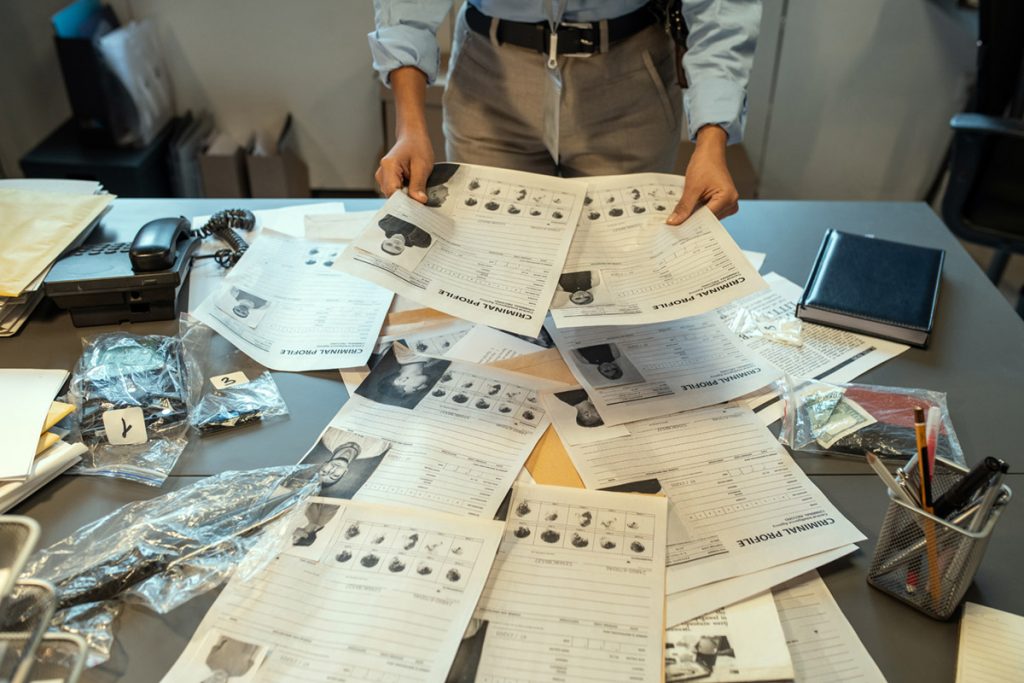Private investigation professionals can be a huge asset to small business owners and large corporations alike, offering a number of different services that can help companies combat fraud, false claims and other wrongdoing. Learn more about some of the most common kinds of investigations that can be conducted by private investigators.
What does a corporate investigator do?
A corporate investigator acts as a private detective for a company, diving deeper into incidents like workplace theft, personal injury, or even conducting robust background checks during the hiring process. Essentially, they look into a business or corporation in order to reveal wrongdoings and deliberately harmful actions.
Corporate private investigators typically have a professional history in law enforcement, business, auditing, or other related fields.
Corporate private investigators typically have a professional history in law enforcement, business, auditing, or other related fields, and a bachelor’s degree is usually preferred. Private investigators must also receive a number of federal and state licenses in order to practice. The need for corporate investigations continues to grow, and Zip Recruiter estimates that the demand for private investigators is expected to grow by at least 11 percent by 2026.
Legal Investigation and Skip Trace Investigation
There are a number of different things investigators can do to assist law firms and attorneys in the court system. Trial preparation is just one of the many types of investigation that private investigators can conduct. During a legal investigation, law firms can hire investigators to assist in the intel gathering and research process ahead of a trial. This can include gathering evidence, interviewing witnesses, and even helping with jury pool research to ensure a fair trial. The goal of trial preparation is to create a story, draw lines from points A to B to C, and give the judge and jury a clear picture of what happened. This can also be helpful to prevent counterattacks from opposing attorneys looking to punch holes in the story.
Skip tracing involves locating individuals who may be hard to find — often intentionally.
Skip tracing involves locating individuals who may be hard to find — often intentionally. Investigators can help with skip tracing to track down potential suspects, find hidden assets, or locate them ahead of a trial or fraud investigation. During the skip tracing process, investigators can identify past criminal history,
Social Media Investigation
Social media is an incredibly useful tool for investigators because an individual’s online presence can reveal a lot about them — including their location, relationship status, hobbies and interests, political views and biases and so much more. Companies can hire private investigators to execute social media investigations because they often have the technical skills, knowledge and resources to uncover exactly the information that’s needed. Private investigators can leverage metadata, online chatrooms and social platforms to find valuable information for companies during the hiring process, or even to identity workers compensation fraud.
Due Diligence Investigation
A diligence investigation refers to an investigation that examines how a company functions, from finances, performances, clients, history and more. Companies looking to merge, acquire other companies or go public may pursue a due diligence investigation to reveal more information about other companies. This can prevent companies from entering into business relationships that may not be beneficial for them long term. A private investigator will use a variety of methods to conduct a due diligence investigation, including an asset search, reviewing public records, and even conducting surveillance.
Surveillance Investigation
A surveillance investigator uses a variety of tools to conduct surveillance investigations, and these investigations are typically executed for businesses looking to reveal insurance fraud or workers compensation fraud. There are a number of different surveillance investigation types, including mechanical, social media, digital, overt and covert.
Surveillance requires a deep understanding of ethics and both federal and state laws in order to practice effectively
Surveillance requires a deep understanding of ethics and both federal and state laws in order to practice effectively — and to avoid legal troubles.
Insurance Fraud Investigation
Insurance companies can hire insurance fraud investigators to investigate cases in which individuals seek compensation for false claims, typically after a personal injury. Employers may choose to undergo an insurance fraud investigation if an employee is injured on the job, and claims that the injury was the result of a work environment. These types of claims can be costly for both the employer and the insurance company. Insurance companies typically have their own Special Investigations Unit (SIU) to investigate false claims, but companies may also hire private investigators to learn more.
Learn More about Private Investigations
InQuest Solutions offers over 20 years of experience in a variety of different services, from claims, to law firms, government, businesses and more. We pride ourselves on accuracy, diligence and tenacity, bringing our clients results in all 50 states. Contact us today to submit a new case request and learn how we can help your company.
Contact us to submit a free new case request.

